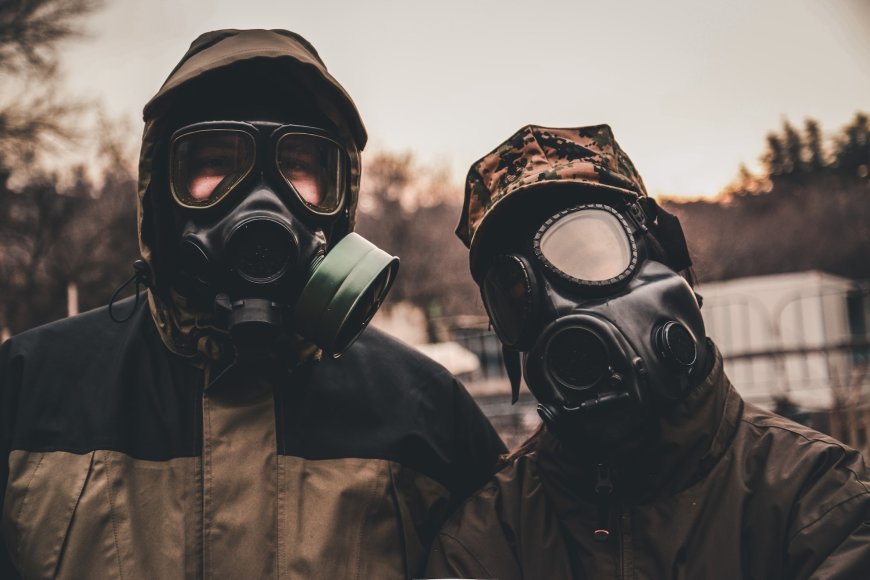Staying Sane in Insane Times: Psychological Resilience in a Post-Apocalyptic World
Dive into the psychological aspects of human survival in a post-apocalyptic world. Learn about the strategies to maintain mental health and build resilience during isolation, a vital component of enduring and thriving in challenging times.

After the apocalypse, physical survival isn't the only challenge. We must also navigate the mental and emotional turmoil that comes with isolation and uncertainty. A strong mind is essential for human survival.
Understanding Stress
In a post-apocalyptic world, stress is a constant companion. This emotional tension can arise from many sources: loss, danger, uncertainty, and isolation. But we can learn to cope. It's crucial to understand stress so we can manage it.
We might feel scared, tired, angry, or sad. These are normal reactions. Recognizing them helps us accept our feelings. By doing so, we are already taking steps to manage stress.
Staying Active
Physical activity is key to stress management. It's not just about staying fit—it's about keeping our minds healthy, too. Regular exercise can help improve our mood and sleep, both important for overall mental health. Simple activities, like walking or doing chores, can make a big difference.
Keeping Connected
In times of isolation, staying connected is critical. We may not have the crowds we're used to, but we can still keep in touch with others. Talking to others—even if they're far away—can provide a sense of normalcy and a way to share feelings and experiences.
Applying the Science of Mindfulness
Surviving in a post-apocalyptic world is as much a mental challenge as it is a physical one. The scientific concept of mindfulness, defined as being completely present and fully engaged with whatever we're doing at the moment — free from distraction or judgment, can prove to be a lifeline.
This practice has its roots in Buddhist meditation, but it's a secular practice — and its benefits have been scientifically validated. Studies have shown that mindfulness can reduce stress and improve mental wellbeing, crucial for survival in extreme conditions.
Here's a simple way to practice mindfulness:
- Focus: Choose a focus point. This could be your breath, the sensation of your feet on the ground, or the sounds around you.
- Observe: Pay attention to your focus point. When your mind inevitably wanders, gently bring it back without judgement.
- Be Consistent: Just like physical exercise, the mental 'muscles' used in mindfulness get stronger with regular practice.
The Science Behind Establishing a Routine
Human beings are creatures of habit, and routines play a critical role in our psychological wellbeing. They provide a framework that gives structure to our daily lives and reduces anxiety caused by uncertainty. The science behind this is clear - a study by the American Psychological Association showed that routines can have a profound impact on mental health.
Creating a routine in a post-apocalyptic world might look like this:
- Wake and Sleep: Set a regular sleep schedule. This helps regulate your body's internal clock and can improve your sleep quality.
- Meals: Try to eat at regular times each day. This helps maintain your body's metabolism and keeps you energized.
- Work and Rest: Allocate specific times of the day for tasks like scavenging, fortifying your shelter, or maintaining your power sources. Remember to include rest periods too.
- Relaxation: Include some relaxation activities in your routine, such as mindfulness exercises, reading, or simply enjoying nature. This helps manage stress levels.
These practices are based on solid scientific principles and can make surviving in a post-apocalyptic world more manageable by providing psychological stability and reducing stress.
Looking Forward
Hope is a powerful tool for survival. Even when the future seems bleak, having something to look forward to can give us the strength to keep going. It could be the prospect of a better tomorrow, the promise of a meal, or the potential of finding other survivors.
In a post-apocalyptic world, the mental battle is as important as the physical one. Understanding stress, staying active, keeping connected, focusing on the now, creating a routine, and looking forward—all these strategies can help us maintain our mental health and survive. Because in the face of an apocalypse, human survival is not just about enduring. It's about thriving.
Disclaimer: The image(s) featured in this article are for illustrative purposes only and may not directly depict the specific concepts, situations, or individuals discussed in the content. Their purpose is to enhance the reader's understanding and visual experience. Please do not interpret the images as literal representations of the topics addressed.
What's Your Reaction?











































































































